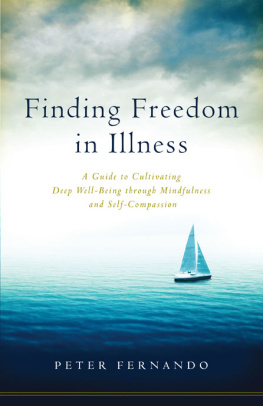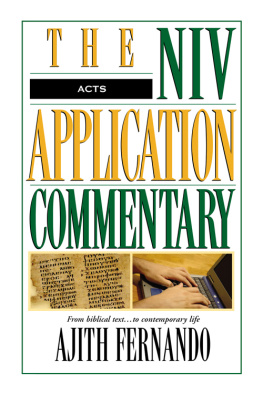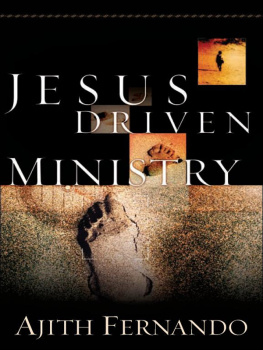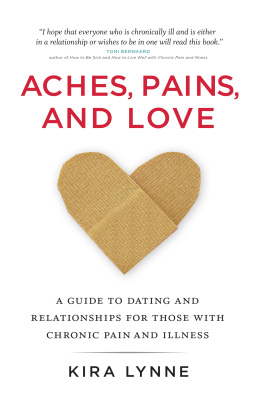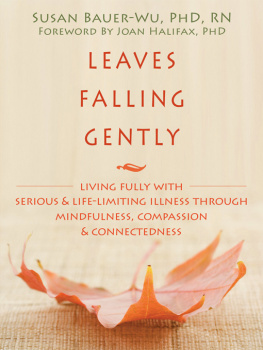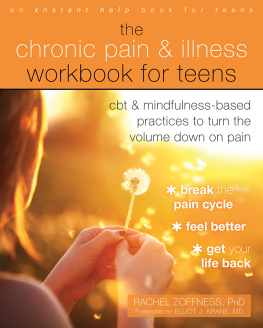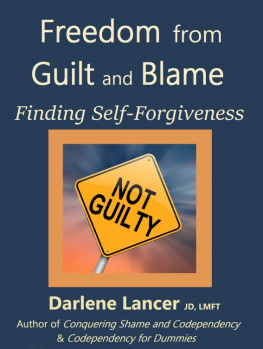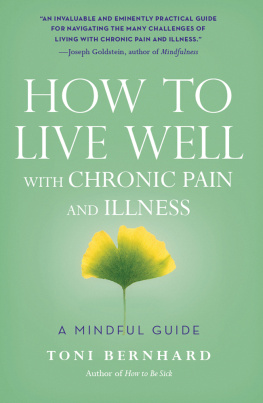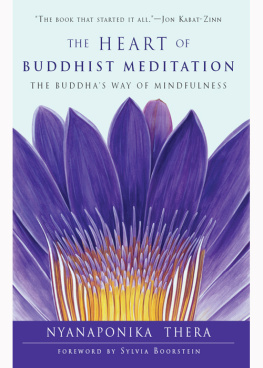ABOUT THE BOOK
Let your illness be your spiritual teacher! Make a statement like that to someone whos struggled for years with, say, rheumatoid arthritis, and be prepared for an eyeroll (at best). To Peter Fernandos credit, he makes that statement, and no such impulse arises. We believe him because hes been there himself and because he backs up the statements with his own real experiences and with real wisdom from the Buddhist teachings. Peter starts by defusing the pernicious belief that anyone is somehow responsible for their illness: Youre not wrong for being sick. Then, having gotten past self-blame, one can begin to learn self-kindness. From there, one moves to mindfulness practices and cultivating body awarenesseven if body awareness is distasteful when the body isnt behaving the way you like. Further topics include getting intimate with dark emotions (fear, despair, the scary future, frustration, grief, etc.), learning equanimity (rejoicing in the good fortune of those who dont share your suffering), cultivating healthy relationships in the midst of everything, and practical advice for living with pain. Each chapter comes with one or more practices or guided meditations for putting the teachings into practice.
Sign up to receive news and special offers from Shambhala Publications.

Or visit us online to sign up at shambhala.com/eshambhala.
Finding Freedom in Illness
A Guide to Cultivating Deep Well-Being through Mindfulness and Self-Compassion
Peter Fernando

SHAMBHALA
Boulder
2016
Shambhala Publications, Inc.
4720 Walnut Street
Boulder, Colorado 80301
www.shambhala.com
2016 by Peter Fernando
Cover design by Susan Koski Zucker
Cover photo by Thinkstock / stevanovicigor
All rights reserved. No part of this book may be reproduced in any form or by any means, electronic or mechanical, including photocopying, recording, or by any information storage and retrieval system, without permission in writing from the publisher.
Library of Congress Cataloging-in-Publication Data
Fernando, Peter, 1976
Finding freedom in illness: a guide to cultivating deep well-being through mindfulness and self-compassion/
Peter Fernando.First edition.
pages cm
eISBN 978-0-8348-4007-2
ISBN 978-1-61180-263-4 (pbk.: alk. paper)
1. Mind and body therapies. 2. Compassion.
3. Self-care, Health. I. Title.
RC489.M53F47 2016
615.851dc23
2015022877
Contents
There are countless people whose presence in my life has contributed to the process of writing this book, both directly and indirectly.
I would like to offer my sincere and deepest thanks to my spiritual teachers and mentors, past and present: Ajahn Sucitto, Sharda Rogell, Ajahn Munindo, Ajahn Amaro, Ajahn Pasanno, Ajahn Viradhammo, Stephen Archer, Ayya Medhanandi, Ajahn Sona, and Ajahn Thiradhammo.
Many of the practices in this book arose directly out of conversations, talks, and advice from Ajahn Sucitto. I would like to acknowledge his significant influence on the themes elaborated in many of the chapters in this book, as well as my exploration of certain Pali words and phrases in a practice context.
Sharda Rogell has been instrumental in guiding me toward a holistic and embodied approach to the Buddhist path. I offer my ongoing gratitude for this, and acknowledge with joy her continued influence on my practice.
Ajahn Munindos enduring guidance and spiritual friendship has been immeasurably supportive throughout my journey and continues to be so. Many of the perspectives in this book have arisen directly from his teachings and encouragement.
The trainings in somatic awareness presented in this book owe a great deal to the deep wisdom and profoundly loving presence of Garry Cockburn.
Special thanks also to James Baraz, whose compassionate encouragement lit the fire in my heart that led to sitting down and beginning to write; and Stephanie Stewart, whose wise reflections and bright spirit in the face of illness have influenced and inspired the words in this book.
Deep thanks to my spiritual colleagues and friends: Erin Taylor, Hugh Tennent, Jeremy Cole, Lynda Miers-Henneveld, Will Fenton, Kelly Fisher, Melissa Billington, Kara-Leah Grant, Zoe Wild, Marianne Elliott, Kanya Stewart, Billy McGrath, Lena Cromartie, Tracy Williams, Wilhemeena Monroe, Katherine Tate, Nick Potter, Roger Livingstone, Andrew Morrison, Lindsay Alderton, Alys Titchener, and Katie Benge, whose presence has and continues to nourish and deepen my understanding of the path in so many ways.
My heartfelt thanks to everyone who so generously gave their time and energy in assisting me during my years of sickness while in the monastic sangha. In particular I would like to mention Ajahn Ahimsako, Debbie Stamp, Ginger Vathanasombat, Tina Tunyong, Adam Kane, Brian Baumann, Aaron Remmington, Somadevi Ankers, Scott Boultinghouse, Chris Bradley, Stephen Burnell, Sucinno Vermeltfoort, Dave Wakeling, Sister Mon, Stephen Roehrig, Ajahn Pavaro, Dave Gardiner, and Ajahn Jotipalo.
I would like to thank John McArthur for inspiring me with his grace and courage in the face of serious illness, Arna Gaby for her great generosity in welcoming me into her home at exactly the right time, and Dr. John McMenamin for being the most attentive and compassionate doctor imaginable.
I offer a heartfelt bow of gratitude to Landa van den Berg and Rutger Keijser for their profoundly generous support, which among many other things enabled me to spend several months in retreat writing this book.
I would like to offer my sincere thanks to Dave ONeal, my amazing editor, for suggesting that a book may be possible, offering me a koan to sit with, and being so totally supportive and generous throughout the process. I am truly grateful to know you.
Deep thanks to my wonderful family: Jana, Noel, Jan, Julie, and Shelli, for everything you have given me that I cant even fathom. Huge love and gratitude to you.
And lastly, to my beautiful partner, Brighdewithout your miraculous love, support, feedback, and deep listening, none of this would even exist.
There is a way of relating to illness that takes us directly to the experience of freedom. It is a way of peace, of awakening, and of deep self-kindness. It invites us to become our own best friend and to inquire into the nature of the present moment with freshness, curiosity, and courage. It doesnt involve being anything other than we are right now. This way hinges upon the power of presence. Presence, or here-and-now awareness, is the imageless, timeless dimension of ourselves that is always right here behind the conditions of our body and the stories of our mind. When we reconnect with this innate awareness, we remember in our heart that we are always whole, always unconditionally valuable. We awaken to the beauty and strength of self-kindness and compassion. We realize that what we really are, in our heart of hearts, is not an individual who is to blame for our health failing or our body being in pain. What we are is more profound and yet more simple than any image we have of ourselves. This innate sense of presence is the source of our real wisdom and compassion. It doesnt exclude our everyday sense of self, but it also knows that its images and self-definitions are not ultimately true. It can include all of the feelings and sensations of the body and is spacious enough to directly sense their ephemeral, ever-changing natureloving enough not to tighten around or harden against them through judgment or blame. Whenever we can trust in this simplicity and directness, the experience is one of great relief.
Next page
